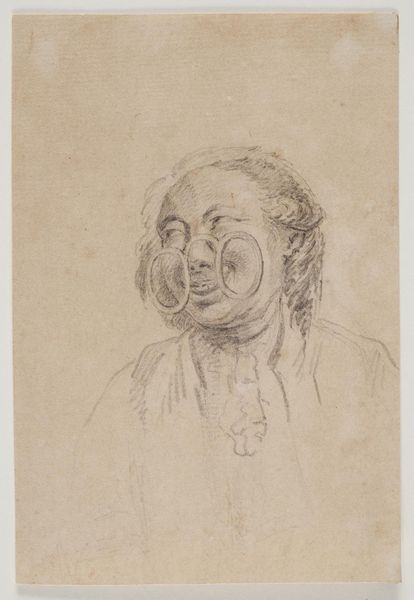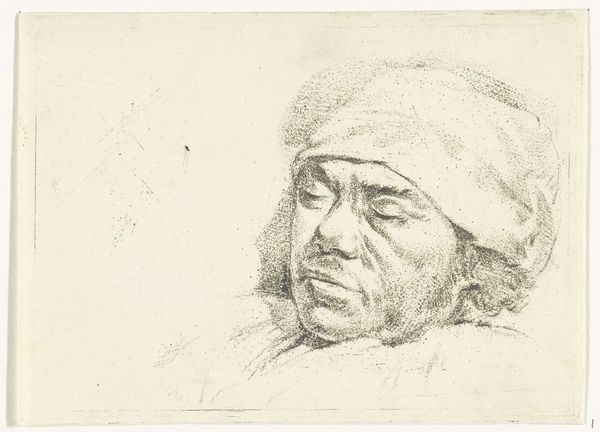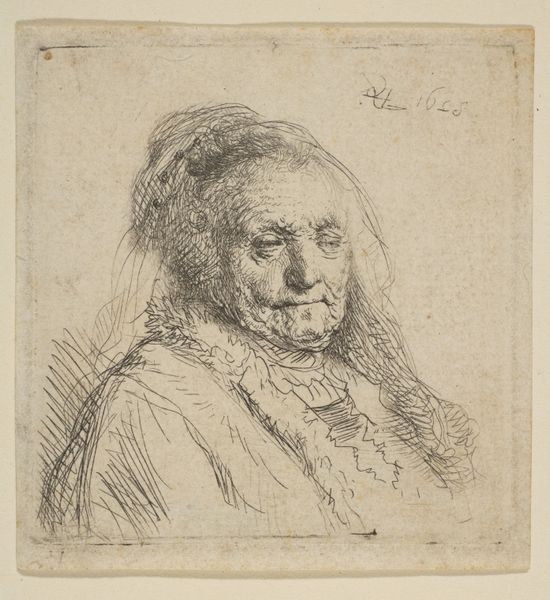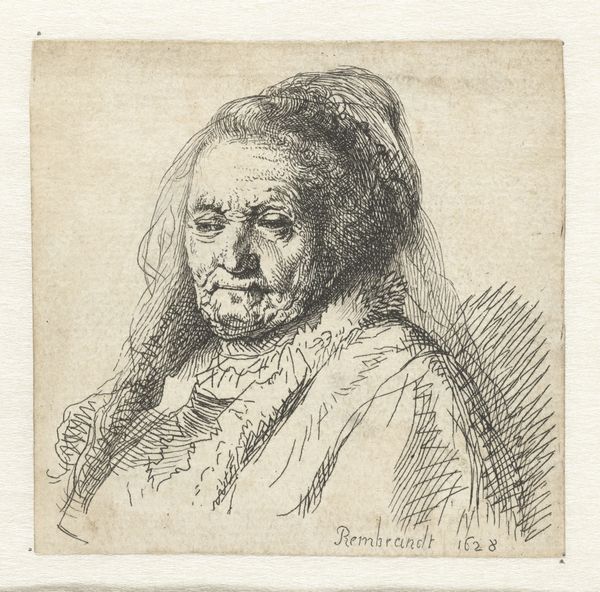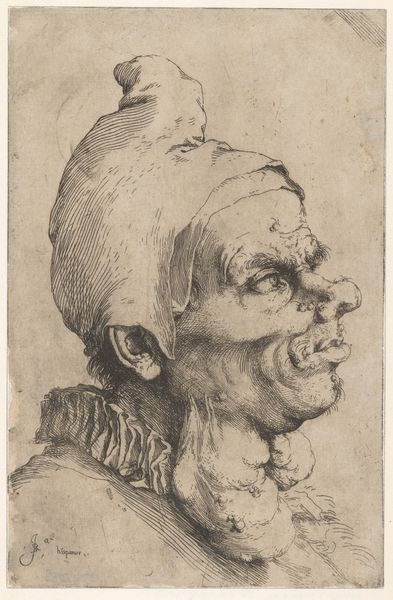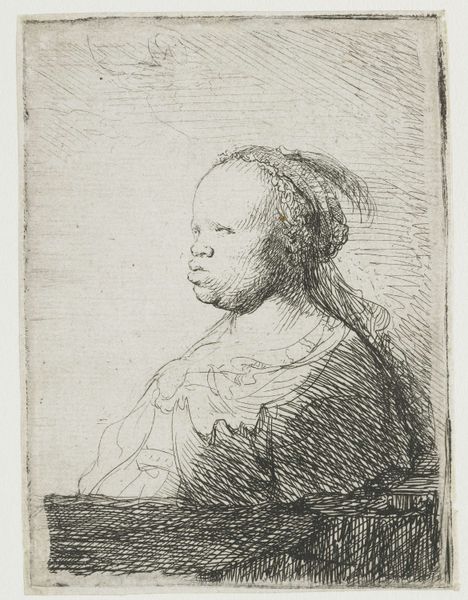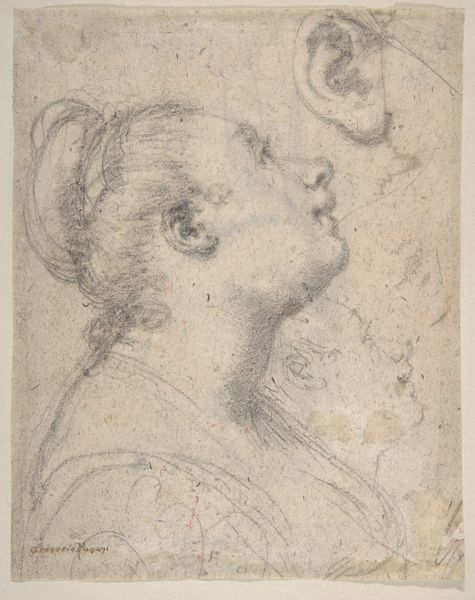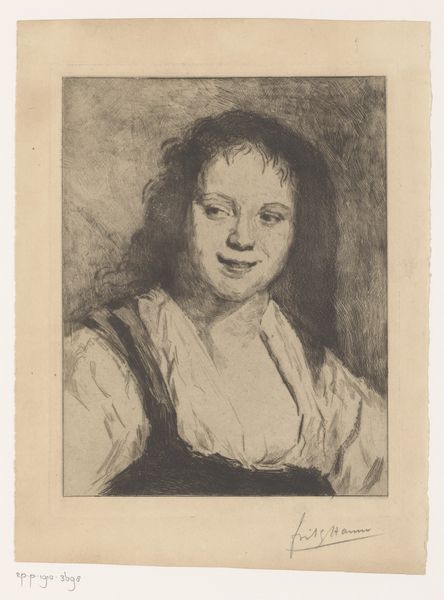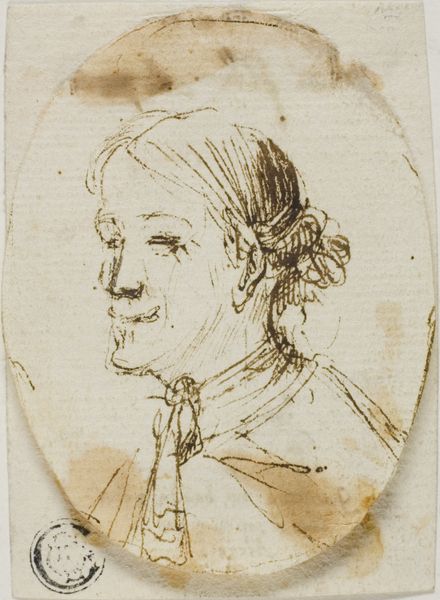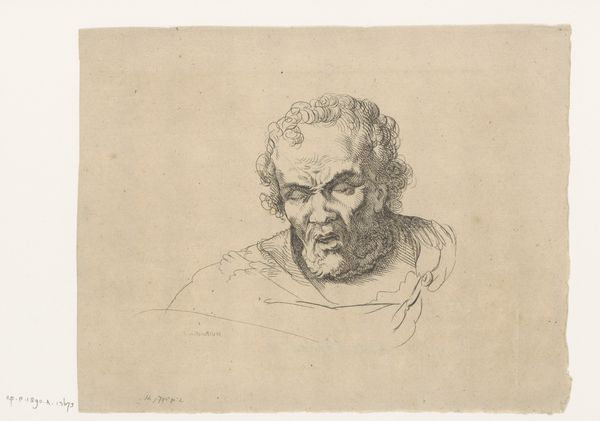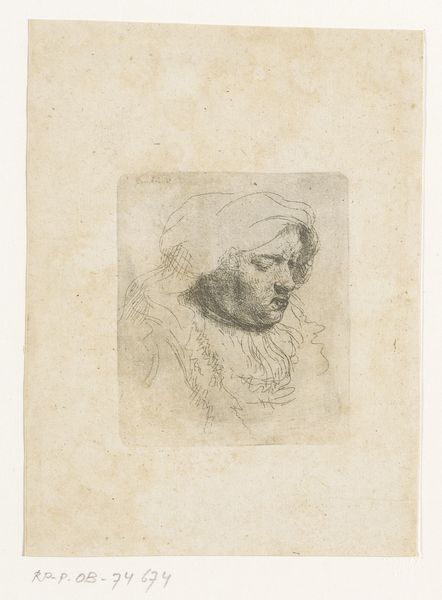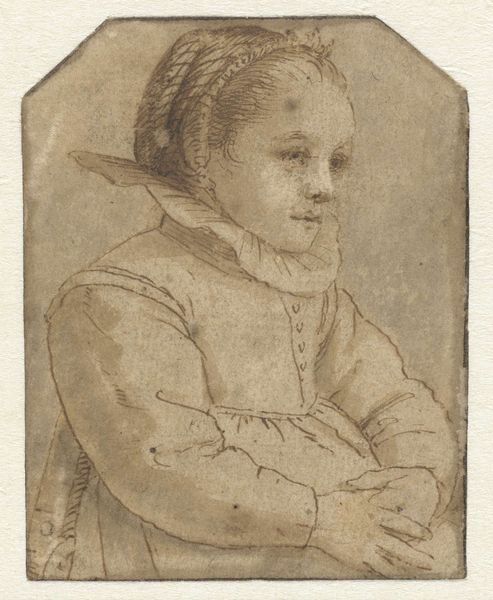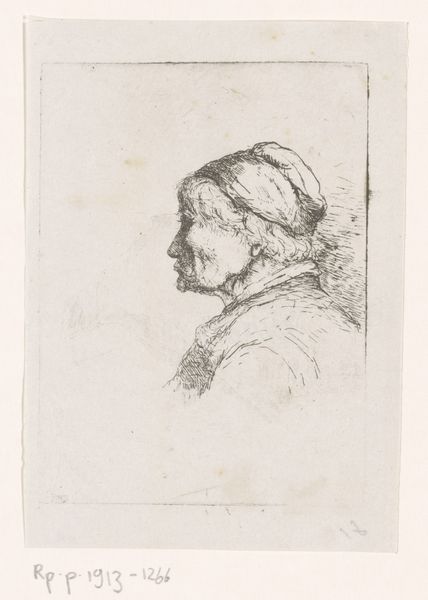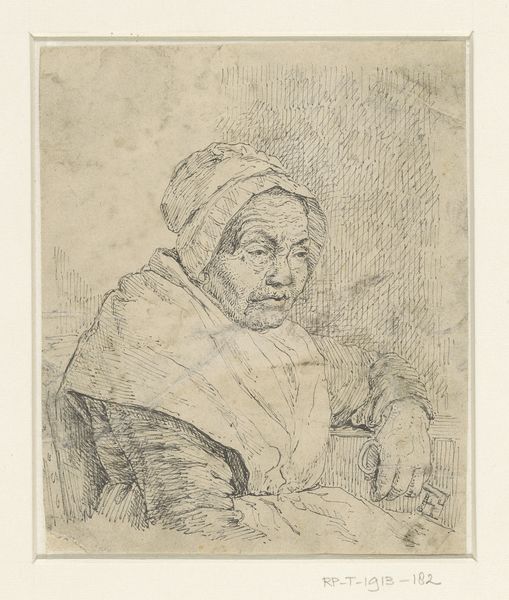
print, etching
#
portrait
# print
#
etching
#
figuration
#
academic-art
Dimensions: height 126 mm, width 98 mm
Copyright: Rijks Museum: Open Domain
Willem Linnig the Younger made this etching, "Portrait of an Unknown Prelate," in the Netherlands sometime in the late 19th century. The print depicts a clergyman, identifiable by his cap and robes. Linnig employed the etching technique, which uses acid to corrode the unprotected parts of a metal surface to create a design. The result is a detailed, yet somewhat softened image, reflecting the artist’s interest in capturing the character of his subject. The late 19th century was a period of significant social and political change in Europe. The role of the church and its members became a contested subject in the public sphere. It is interesting that the artist gives us an image of a member of the clergy but leaves him unnamed, perhaps suggesting a commentary on the changing status and visibility of religious figures in society at this time. To fully understand this work, one might delve into the social history of the church in the Netherlands. Art historical research provides the cultural context that helps us interpret such a portrait and its potential commentary on its time.
Comments
No comments
Be the first to comment and join the conversation on the ultimate creative platform.
